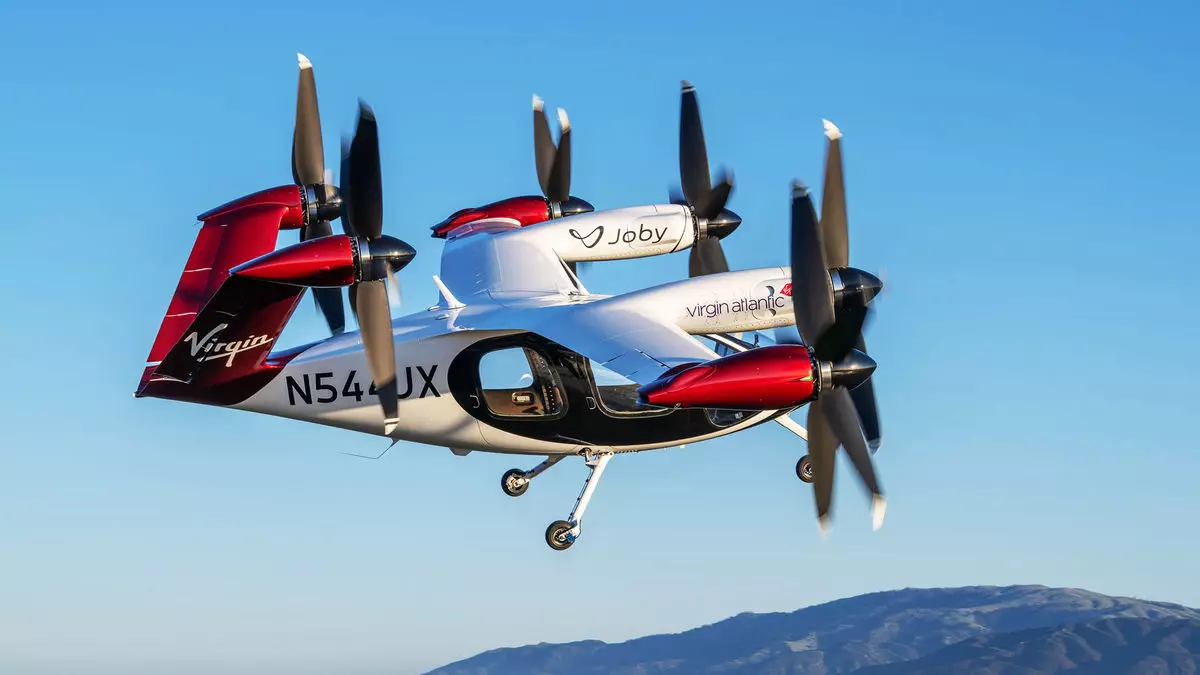Virgin Atlantic is embarking on an ambitious partnership with Joby Aviation, a cutting-edge developer of electric air taxis based in California. This collaboration marks a pivotal moment in the commercialization of aerial mobility, as Virgin Atlantic aims to introduce leisurely and efficient travel options between London Heathrow and Manchester airports. By supporting Joby in securing the necessary certifications for its innovative four-seat electric aircraft, Virgin Atlantic is not just riding the wave of technological advancement; it is actively shaping the future of air travel.
Air travel is often burdened with delays and time-consuming security measures. By introducing a seamless integration of air taxis into its operations, Virgin Atlantic is poised to redefine customer experience. Imagine a scenario where a ride from Heathrow to London’s bustling Canary Wharf takes a mere eight minutes compared to the typical 80-minute car journey. Such a leap in efficiency not only caters to the fast-paced urban lifestyle but also opens up a promising avenue for those who prioritize convenience in travel.
Strategic Vision for the Future
Virgin Atlantic envisions a comprehensive network of air taxi routes stretching across major cities and regions of the United Kingdom. As the partnership progresses, Virgin intends to market the air taxi services vigorously, promoting them as an appealing option for passengers looking for an alternative to traditional ground transportation. However, for this vision to materialize, Virgin Atlantic will need to advocate for the development of vertical landing areas, a critical infrastructure element that would support the widespread adoption of air taxis.
This venture is not just about luxury; it hints at a transition where urban mobility becomes more accessible and integrated into our daily lives. The technology behind Joby’s electric aircraft, which boasts impressive speeds of up to 200 mph and a range of 100 miles, reflects a transformative shift in how we think about commuting. The potential to reach hard-to-navigate areas quickly could entice a significant number of travelers currently dependent on roadways.
The Economic Implications
One of the most intriguing aspects of this partnership lies in its economic potential. Joby Aviation claims that its pricing will be competitive with existing premium ridesharing options, thus making air travel not just a once-in-a-while luxury but a feasible choice for daily commuters. This democratization of air travel could revolutionize the transportation landscape, especially in urban settings where traffic congestion is rampant.
Nonetheless, the realization of such a paradigm shift comes with challenges. Virgin Atlantic’s vague mention of investment raises questions about the financial commitment required to turn this ambitious vision into reality. Adequate funding will be pivotal for ensuring that the necessary infrastructure is established and that the technology is refined for public use.
As we stand on the brink of what could be an exciting chapter in urban transit, Virgin Atlantic and Joby Aviation are poised to lead the charge. However, their success won’t solely depend on cutting-edge technology; it will also hinge on public acceptance, regulatory support, and the establishment of operational frameworks that can accommodate this new form of travel. The air taxi industry is still in its infancy, but the possibilities it presents could indeed change the way we navigate our cities forever.


Leave a Reply